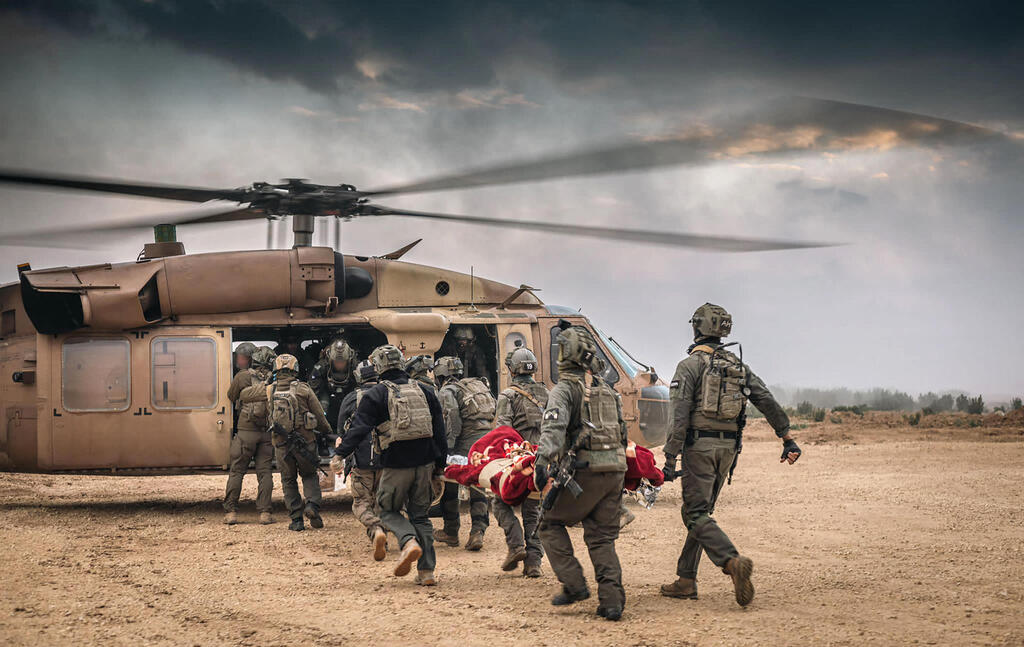
Israel turns to AI to deal with PTSD crisis amid Gaza war
Due to the urgent and unprecedented number of soldiers returning from combat with PTSD and an acute shortage of treatment options, the Ministry of Defense has appealed to companies and academic institutions to develop technologies to support mental health treatment
The high number of wounded soldiers fighting in Gaza, many of whom exhibit symptoms of post-traumatic stress disorder (PTSD), coupled with the severe shortage of healthcare providers, has compelled the security apparatus to embark on an urgent quest for AI-based technologically driven solutions to improve treatment. In recent days, the Ministry of Defense has reached out to companies in the defense industry and academia to develop long-term mental health solutions that will be integrated into diagnosis and treatment plans for veterans.
This plan is primarily driven by the urgent situation and is spearheaded by the Ministry’s Directorate of Defense Research & Development and Rehabilitation Department, in coordination with the mental health and behavioral sciences units within the IDF. The goal is to identify and map new technologies in various stages of development that can help to cope with an unprecedented influx of cases from regular service members and reservists engaged in combat in Gaza and the northern border, who have or are at risk of developing PTSD.
In its appeal to companies, including startups, the security establishment has given two weeks for submitting proposals for technological diagnostic tools that can be integrated into first aid for combat soldiers who have symptoms of PTSD. These technologies would enable patients to have accessible self-care around the clock to prevent deterioration of their mental state, tools for interpreting emotional and cognitive states as parameters for assessing resilience, supportive tools for affected families, and more. Concurrently, within the security establishment, proposals for research in mental health are expected to be received from academic institutions, aiming to develop new insights regarding treatment approaches to prevent the development of PTSD among soldiers.
The search for technologies to assist in treating soldiers who have experienced combat is being intensified due to concerns from rehabilitation bodies within the Ministry of Defense and the IDF, which are predicting significantly larger numbers of patients than in previous conflicts. This is mainly due to an increased awareness of the issue, the exposure of soldiers to numerous traumatic incidents in Gaza border communities and the south on and following Hamas’ attack on October 7, the collective national shock from the attack, the unprecedented number of wounded, and the prolonged duration of the war, now over five months-long.
At the same time, Israel's mental health system has a severe shortage of psychiatrists, psychologists, and professional care providers who can provide initial treatment to soldiers returning from the front lines, which can prevent their condition from deteriorating into a long-term illness.
According to a security source, "We found that there are technologies in the market, some of which exist but are not tailored to these purposes, or others that do not exist but can be developed relatively quickly and can help strengthen resilience and facilitate diagnosis in various cases of PTSD. Each victim will be provided with tools according to their individual needs, to complement the treatment provided by professionals. The technologies adopted as part of the process do not serve as a substitute for human treatment providers."
In recent months, proposals from numerous civilian entities on developing tools and techniques for treating PTSD victims have reached the ministry, and the Directorate estimates that many more will come following their appeals to companies and academic institutions. "We receive a lot of feedback from the civilian market, from companies and entrepreneurs who want to present development plans for such technologies. From our perspective, the main principle is first of all do no harm but improve the situation. Any adopted technology must be safe and supported by research, and the professional entities on our behalf must be convinced that it can facilitate and assist in the treatment process," said a Defense Ministry source.
No expenses are being spared for this initiative, and the security system intends to adopt a large number of tools tailored to those coping with PTSD symptoms at different levels, as well as their families. According to those involved in the process, time is of the essence. "The ability to provide proper treatment quickly in such situations is critical," said a security source. "There is a high chance that those who develop PTSD symptoms and receive the support they need promptly will not develop a persistent condition requiring years of treatment."
Since the beginning of the war, the ministry’s Rehabilitation Division has reported 6,000 wounded - both physically and mentally. They estimate that by the end of the year, the number of wounded will reach about 20,000. "Most of the patients being treated today are dealing with physical injuries, but we expect that some of them will also cope with psychological ones," it was reported.
First published: 12:38, 14.03.24














